‘Idiocracy’ is a sci-fi comedy film that follows Joe Bauers, a librarian in the United States Army, who is chosen to be the test subject of the military’s top-secret cryogenics experiment – so secret, in fact, that even Bauers isn’t even aware of it when they place him inside the machine and turn it on. The army’s initial plan is to have Bauers stay frozen for one year, but by inexplicable circumstances, the machine ends up running for a little over five centuries. When Bauers wakes up in the year 2505, he finds himself in a world where humans have devolved to the point of extreme stupidity and naiveté, and corporations have become the true rulers of the world.
Directed and written by Mike Judge, the 2006 film stars Luke Wilson, Maya Rudolph, Dax Shepard, Terry Crews, David Herman, Justin Long, Andrew Wilson, and Brad Jordan. If you enjoyed the film’s premise, then we have a few recommendations you might like.
8. Superintelligence (2020)

‘Superintelligence’ revolves around Carol Peters (Melissa McCarthy), an environmental activist, whose entire life changes when she signs up for a dating website. Labeled “the most average person on Earth” after an interview with one of the website’s representatives, she catches the attention of a rogue autonomous artificial intelligence (James Corden). The A.I. is going through the very difficult process of deciding whether to save humanity from its own self-destructive tendencies, take over the world to course correct it, or simply destroy all life on Earth and start over. To help it choose what to do, it decides to observe Carol and let her actions dictate the outcome.
Directed by Ben Falcone, ‘Superintelligence’ puts the onus of saving the world or face death within three days on Carol’s shoulders, quite similar to how in ‘Idiocracy’ Joe is ordered to fix the food scarcity in the future within one week – failing to do so would result in certain death.
7. Gamer (2009)
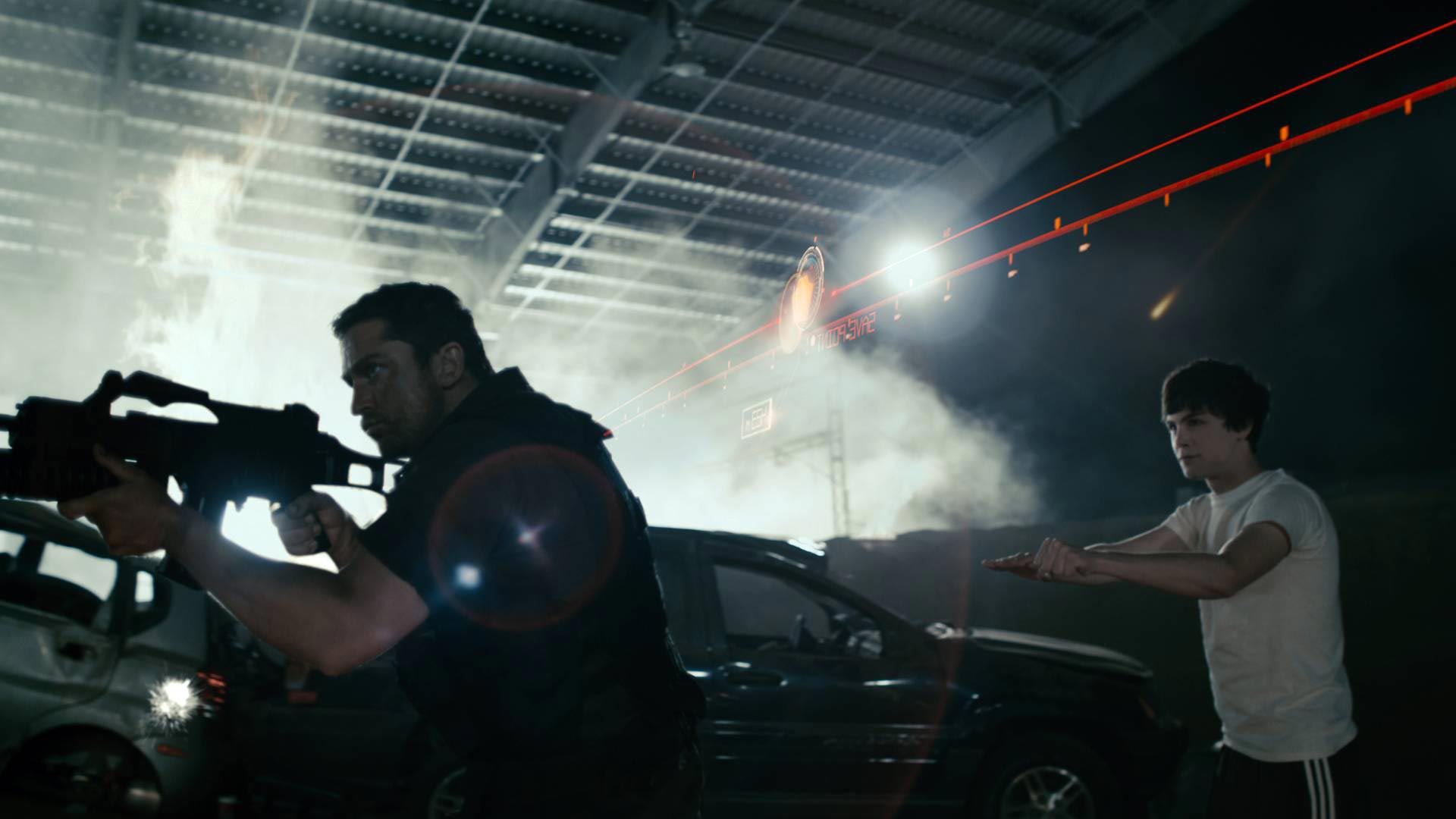
Genius programmer Ken Castle (Michael C. Hall) creates the Nanex technology in 2034, which replaces the tissue in human brains with self-replicating nanites. These nanites essentially allow humans to control other humans as avatars, giving birth to two of the most popular games in history – ‘Society’ and ‘Slayers.’ Both games involve controlling other people’s actions, but the latter is a death match masquerading as a first-person shooter that uses death row prisoners in a Battle Royale.
The prize for winning 30 matches in a row is instant freedom for the inmate, and Kable (Gerard Butler) is close to becoming the first prisoner to do so. Unknown to everyone, however, a movement is slowly rising against Nanex technology. The film, directed by Mark Neveldine and Brian Taylor, shows a bleak future reality in which commercialism and corporate lobbying are rampant through the invasive use of nanites, much like how corporations control everything in ‘Idiocracy’ by implementing consumerism through technology on the complacent population.
6. Demolition Man (1993)
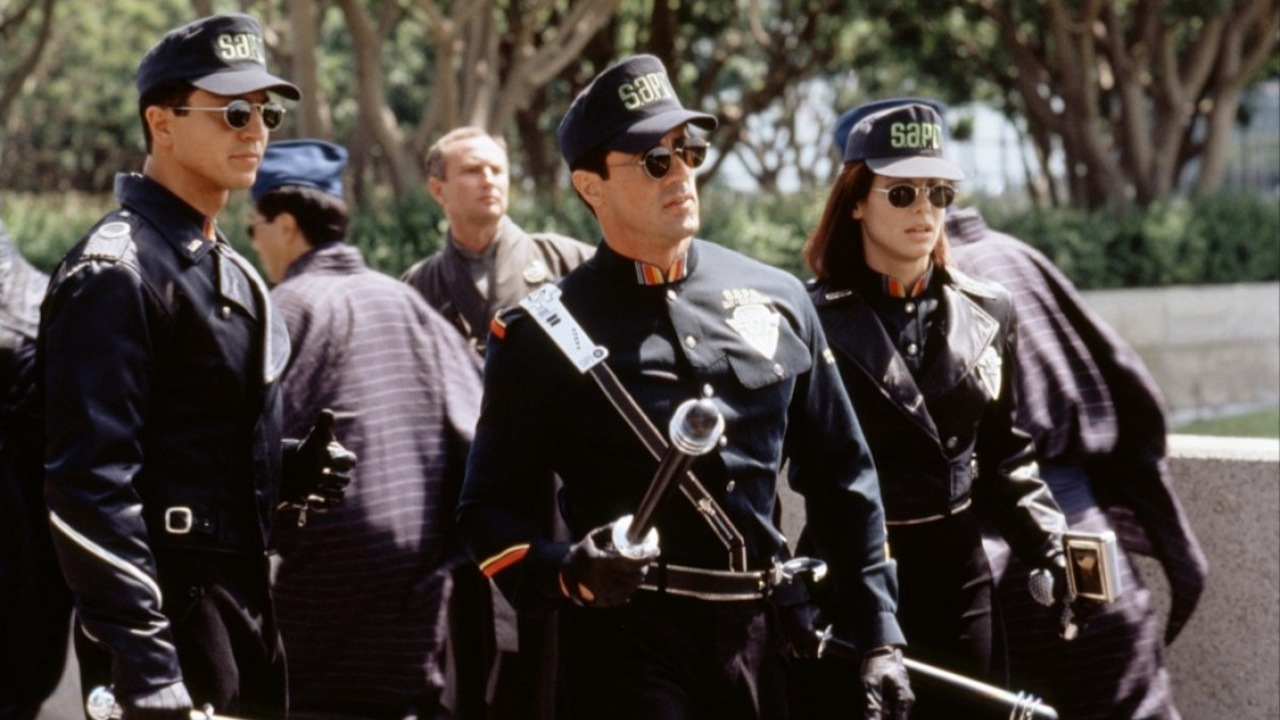
‘Demolition Man’ follows LAPD Sergeant John Spartan (Sylvester Stallone), who is framed for the deaths of over a dozen people by Simon Phoenix (Wesley Snipes), after the former ends up destroying an entire building in his attempt to arrest the latter. Convicted of their crimes, both John and Simon are cryogenically frozen to serve out their sentences.
When Simon is released in the future and resumes his reign of terror, John Spartan is also woken up into a world that is much more peaceful, but also a lot more docile, to put a stop to him. Directed by Marco Brambilla, the action film follows a similar storyline to ‘Idiocracy’ in which the protagonist is frozen and revived in a future that has regressed in terms of intellectualism than what they knew in the past, albeit with thrill-inducing fight sequences.
5. Soylent Green (1973)
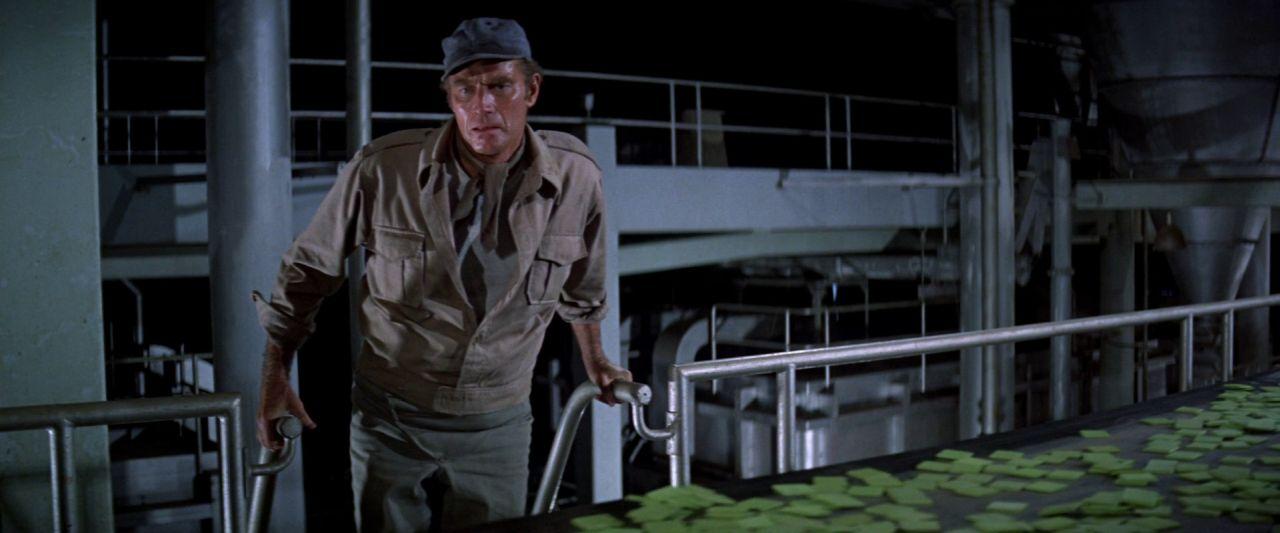
‘Soylent Green’ is a dystopian thriller film that follows an investigation conducted by NYPD detective Robert Thorn (Charlton Heston) into the murder of William R. Simonson (Joseph Cotten), a board member of the Soylent Corporation. The Corporation is responsible for the manufacturing and distribution of Soylent Red, Soylent Blue, and Soylent Green, which are eaten by the poor masses as food substitutes in a world where crops cannot be grown to sustain everyone due to overpopulation, pollution, and the hoarding of resources by the rich elites. Directed by Richard Fleischer, the film’s depiction of food scarcity due to a ruined ecosystem is reminiscent of the food scarcity in ‘Idiocracy.’
4. Snowpiercer (2013)
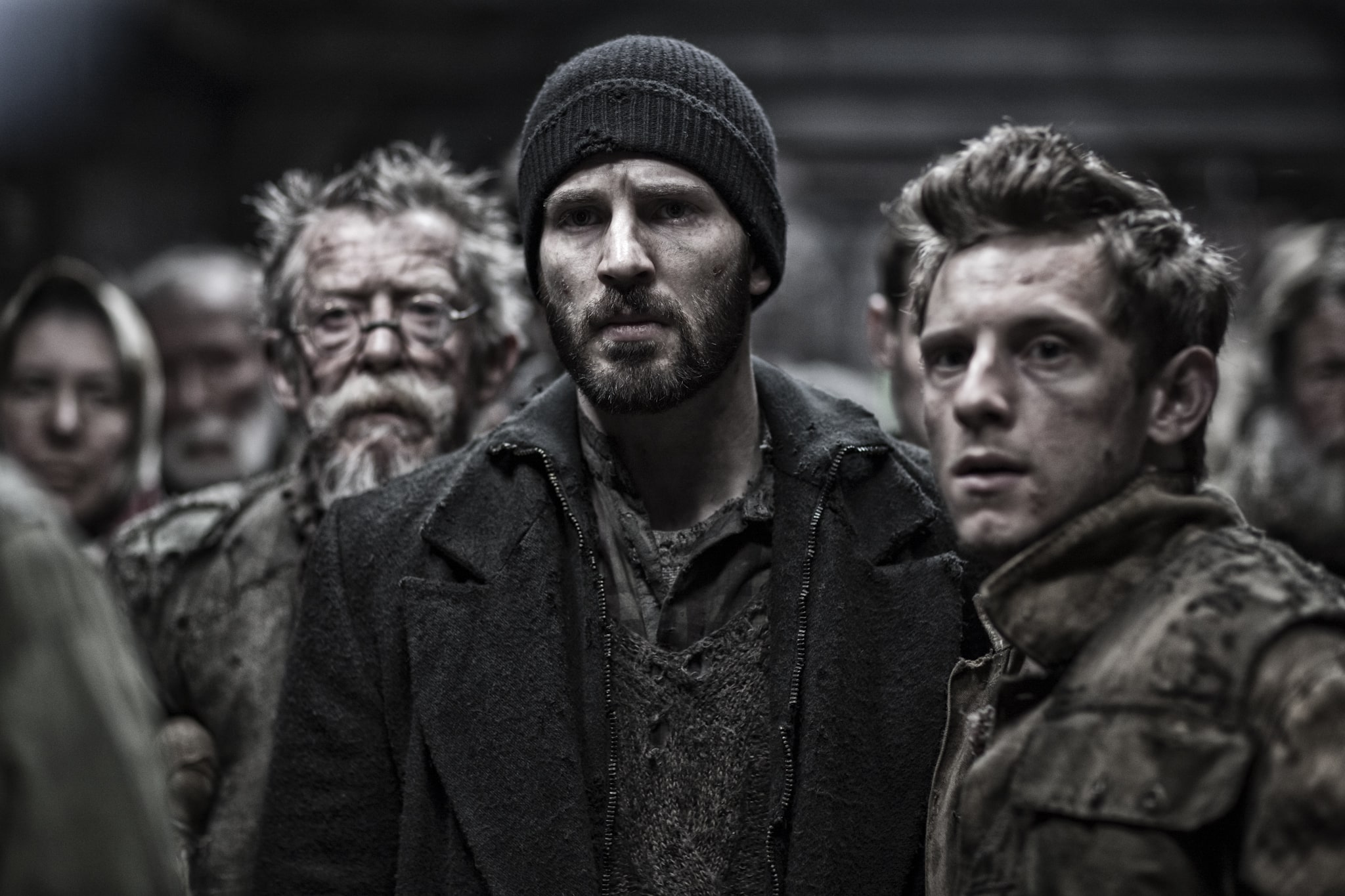
The entirety of the world’s population is trapped on a perpetually moving train, with the outside world having turned into a dead, frozen landscape. The train houses the world’s richest people in front cars with all imaginable amenities available to them, while the stowaways who boarded the train just as it left the station are forced to live in poverty and hunger.
To bring a change to their situation, Curtis (Chris Evans) leads a rebellion and discovers something horrifying in the process. In Bong Joon-ho directorial, the way that the people in the back cars rally behind Curtis as a leader against the rich elites is similar to how the citizens of the future in ‘Idiocracy’ end up making Joe the President to undermine the ruling corporations when they find out that he’s a little smarter than them.
3. Don’t Look Up (2021)

‘Don’t Look Up’ is a disaster film that revolves around Dr. Randall Mindy (Leonardo DiCaprio) and Kate Dibiasky (Jennifer Lawrence), two astronomers who discover a world-ending meteor headed towards Earth. But when the government refuses to take the threat seriously as it’s not in the immediate future, Mindy and Dibiasky decide to go on a press tour to warn the general public about it. However, somewhere along the way, Mindy loses sight of the oncoming disaster himself and gets lost in the sudden fame that the press tour has brought him.
Directed by Adam McKay, ‘Don’t Look Up’ yet again tells of the dangers of too much commercialism and consumerism, wherein even a world-ending natural disaster is overlooked in favor of fame, fortune, and entertainment for the masses. ‘Idiocracy’ also makes a spectacle out of Joe by throwing him into a monster truck demolition derby when the solutions he came up with to save the crops don’t show immediate results.
2. Being There (1979)
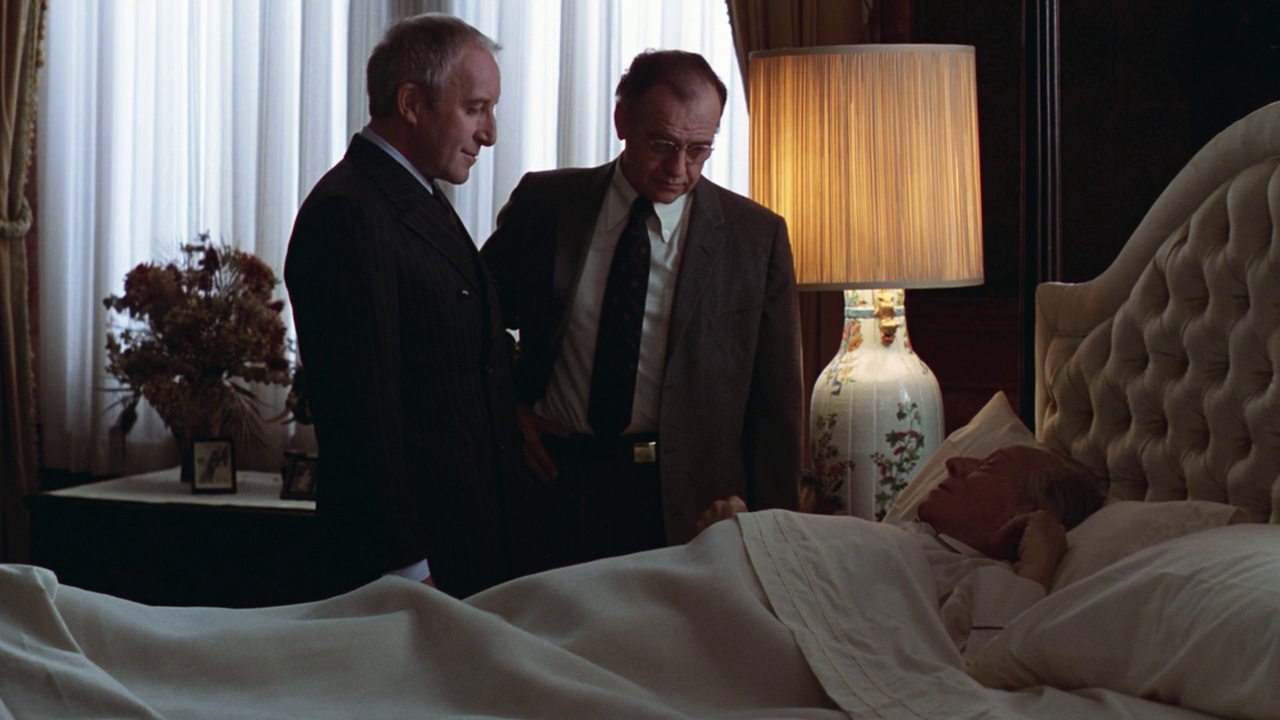
Directed by Hal Ashby, ‘Being There’ centers around Chance (Peter Sellers), a gardener, who has worked in the estate of an old man all his life and only knows about plants and the world from whatever he could glean from watching television. But when the old man suddenly passes away, Chance is thrown out on the streets as he has no claim to the estate. Venturing out into the world for the first time, Chance immediately gets into a car accident and is taken to the mansion of the heiress whose car hit him.
Once at the mansion, Chance is mistaken for a wise and affluent man who has fallen on hard times when the gardener talks about the changing seasons and how it affects the various plants, which is taken as a metaphor for the political climate of the country by everyone. Much like Joe in ‘Idiocracy,’ Chance simply states what he believes to be common sense, but is taken as this profound political genius by those around him and given a high seat of power because of it.
1. Blade Runner (1982)
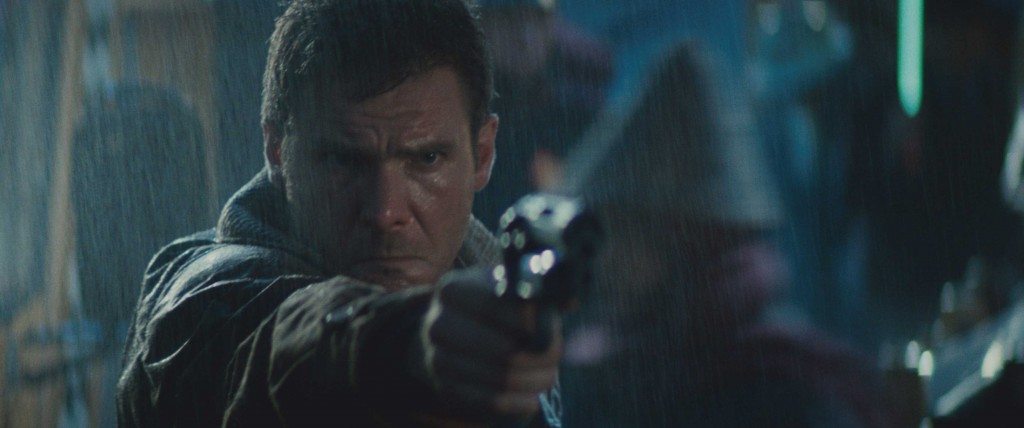
Directed by Ridley Scott, ‘Blade Runner’ revolves around Rick Deckard (Harrison Ford), a former police officer with the LAPD, who is coerced into hunting down four rogue replicants (bioengineered humanoids) by his former supervisor and to “retire” them. Deckard reluctantly takes on the job, and in the process, learns certain things about the replicants that make him question his entire worldview on them, as well as his role as a blade runner in the past.
One of the main themes in ‘Blade Runner,’ which it criticizes, is eugenics, i.e., the creation of a human being with desirable traits, which in the case of the film are the artificially created replicants who have replaced most of the human population in hazardous working conditions due to their resilience and programming to obey commands.
The topic is approached in ‘Idiocracy’ as well, but this time with dysgenics, which is the forced removal of certain traits because the environment humans live in no longer has any need for them. This leads to the mass degradation of brain power in every human being in the future, as technology does everything for them so they have no reason to think.
Read More: Underrated Sci-Fi Movies of the 21st Century

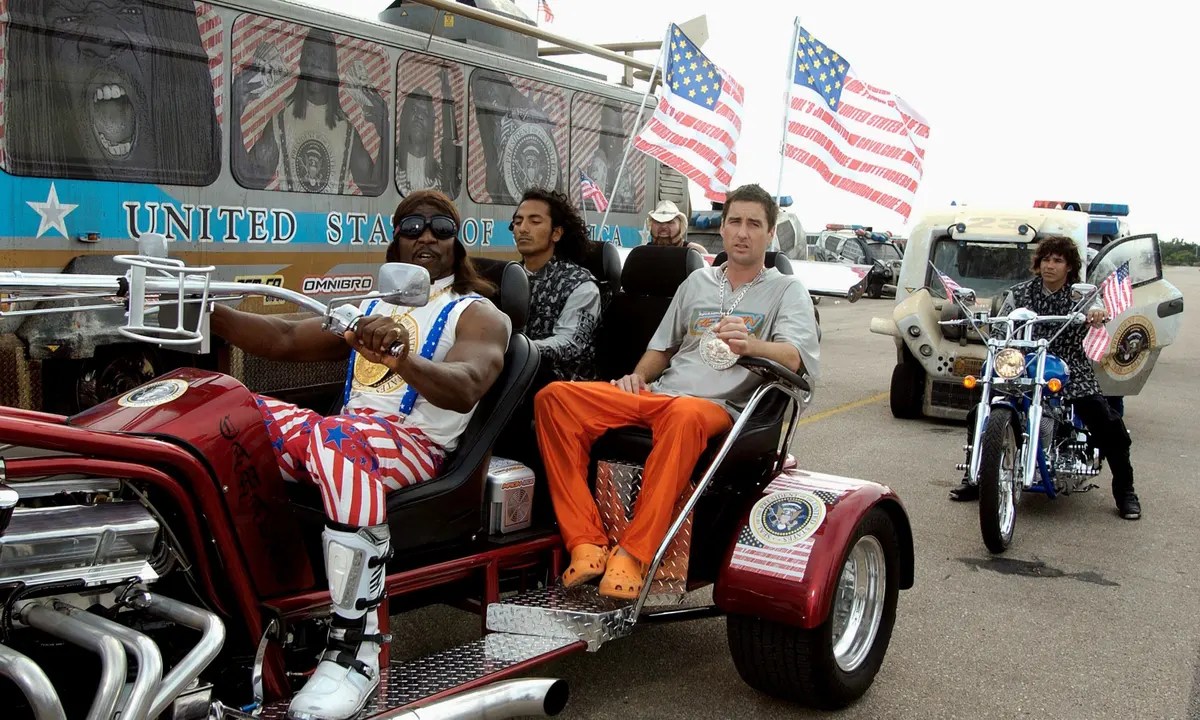
You must be logged in to post a comment.